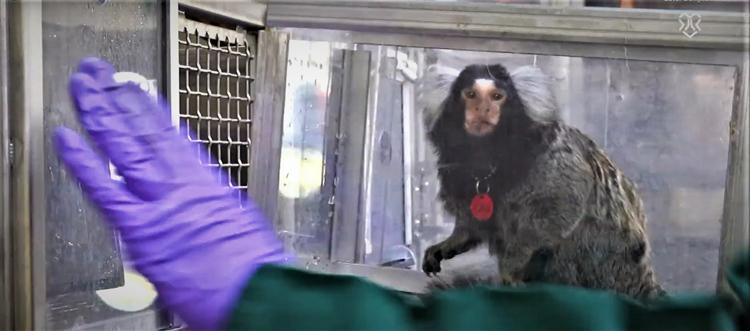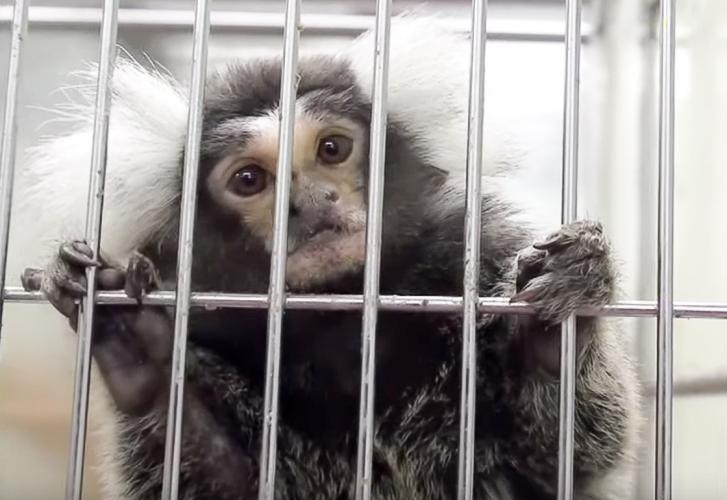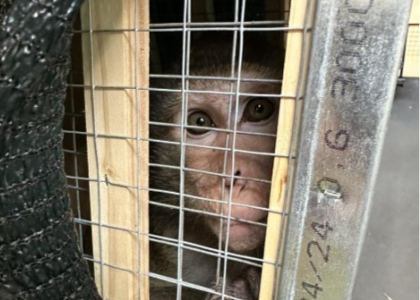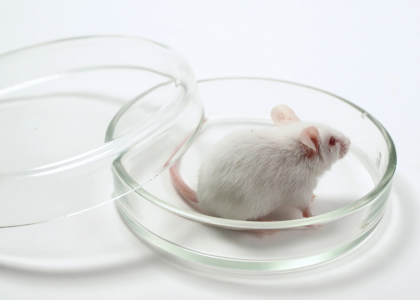Inhoud
Marmosets subjected to inescapable electric shocks to study PTSD
Animal Protection groups have severely criticised publicly funded research in which marmosets were subjected to inescapable electric shocks to their feet in an experiment to study post-traumatic stress disorder (PTSD) in people. 1. PTSD is an anxiety disorder, which can develop after a traumatic, harmful or life-threatening event, such as combat exposure, an accident or physical assault. The study was done purportedly to evaluate the effect of ketamine which is used as an anaesthetic for people and other animals - on fear memory, heart rate, cortisol levels and sleep, which are affected in people suffering from PTSD.
BPRC
The work was done at the Biomedical Primate Research Centre (BPRC), Rijswijk, in the Netherlands, and funded by the European Framework Program 7. Animal Rights (Netherlands) and Action for Primates (UK) are calling for an end to the research at the BPRC, Europe's largest non-human primate research centre funded by the Dutch Ministry of Education, Culture and Science. The Dutch government banned the use of chimpanzees at the BPRC several years ago but allowed research to continue on other non-human primates.
Cruel experiments
In the recently published research, twelve adult female common marmosets were used in the research. They were placed in a "passive avoidance apparatus" with "two compartments (dark vs illuminated)". Confined in one of the compartments with an electric grid floor, they were subjected to four random inescapable foot-shocks within a 15 minute period.
The marmosets were subjected to highly invasive abdominal surgery in order to implant a transmitter device to record sleep electroencephalogram (EEG) (recording of the electrical activity of the brain) and the heart rate by electrocardiogram (ECG). Electrode wires for the ECG were tunnelled through the subcutaneous tissue to the chest and fixed to a muscle and those for the EEG were inserted through the subcutaneous tissue to the skull and fixed by a surgical screw and dental cement.
All marmosets were killed
Clinical observations were carried out once a day when the animals were scored on displaying signs of apathy, immobility, inadequate grooming, huddle (foetus-like posture), stereotypic behaviour (non-purposeful repetitive movements such as circling). The scoring ranged from 0 (normal) to 4 (severe). All the marmosets were killed to study the brains.
Dr Nedim Buyukmihci, Emeritus Professor of Veterinary Medicine at the University of California, stated: ‘’Subjecting non-human primates to inescapable foot shocks in an attempt to simulate PTSD in people is a simplistic and very inhumane way of studying this distressing disorder. The general treatment hypothesis could be tested more effectively and humanely in people with PTSD. The BPRC claims it adheres to the 3Rs and ’...promotes the use of alternatives to animal experiments where possible and considers their development to be part of its mission.’ I believe that this study is contradictory to that.’’
Action
Animal Rights founder Robert Molenaar stated: "Generating so much stress, fear and pain in animals that are so much like us is nonsensical and completely unacceptable."
Animal Rights has started a petition and sent a letter to the Dutch Parliament calling for the closure of the BPRC. On Wednesday, 30 June at 13:00, Animal Rights is organizing a protest action in front of the BPRC gate.





